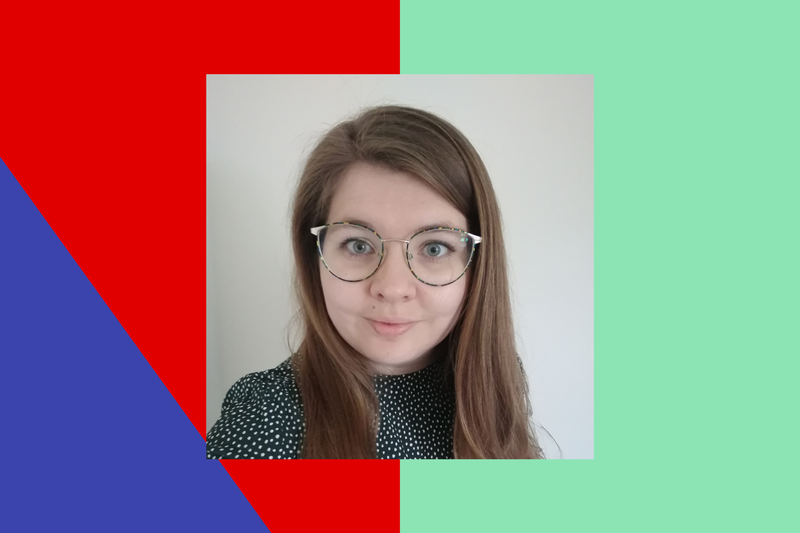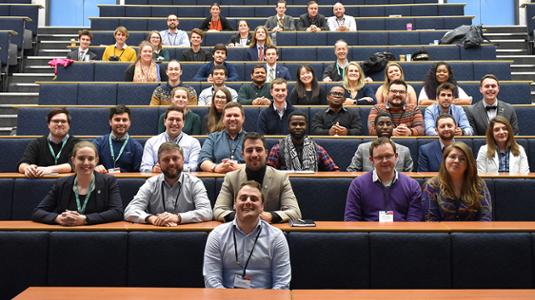Introducing the new SECC Chair
Congratulations to Aimee Goodall CSci MIMMM who has taken up the role of the Student & Early Career Committee Chair (2022–2023).

Aimee tells us what she is most looking forward too and her aims for 2022 and beyond.
Tell us about yourself.
Since 2018, I have worked as a Process Technology Specialist at the Tata Steel, zinc galvanising line in South Wales. I studied my PhD at the University of Birmingham, UK, focusing on microstructural development in high strength low alloy plate steels. I only discovered metallurgy as a discipline during my undergraduate degree in Forensic Science at De Montfort University, UK. I gained experience in the steel industry during one of the summer terms. Outside of the world of steel, I am part of a local litter picking group and enjoy sitting in a coffee shop reading whatever book is in my bag.
How do you feel about taking up the role of SECC Chair?
I'm really looking forward to it, even if I am a little bit nervous taking on the extra responsibility, as many people would be when starting a new role. However, I am always up for a challenge, and I truly believe pushing yourself out of your comfort zone helps you to grow. I've been on the Committee since 2016, it has been nice to build up experience which I hope to use during my time as chair. It’s an exciting opportunity and I can’t wait to get started.
Has you predecessor, Martyn Jones, offered any advice?
When I spoke to Martyn he said that the best thing is to be myself, to stay calm and be confident. Reassuringly, he said that having knowledge of what you are talking about will help. I have been shadowing him as Vice-Chair for the last two years, so I’m not being thrown into the deep end.
What aims do you have for your tenure as Chair?
I want to make sure that the SECC continues to be a key part of student and early career development. I'm looking forward to connecting more with SECC group members and hearing how best the committee can support that, through events, networking sessions and focusing on professional career development. I’m happy to hear any other ideas members have too.
What do you feel are the most important challenges for the SECC and how do you see its role within the Institute?
It is hard to ignore the challenges COVID is still bringing to everybody both physically and mentally. I can’t predict the next two years, but I know that the challenges the SECC face will change – it is important to be adaptable and conscious of that. Networking will be harder and there may not be as many opportunities for ‘corridor conversations’ that can be really useful as a student or early in your career. Of course, there are the more traditional challenges of being early in your career such as gaining confidence in your ability, finding your place in the workplace and making a supportive network.
It is really important the SECC group members have their voice represented within IOM3. It is even more important to have that representation come from a group experiencing the same challenges and demands. The group members consist of the people who will be running businesses, industries, and leading academia in the future. It is crucial IOM3 supports them from the very start of their career.


